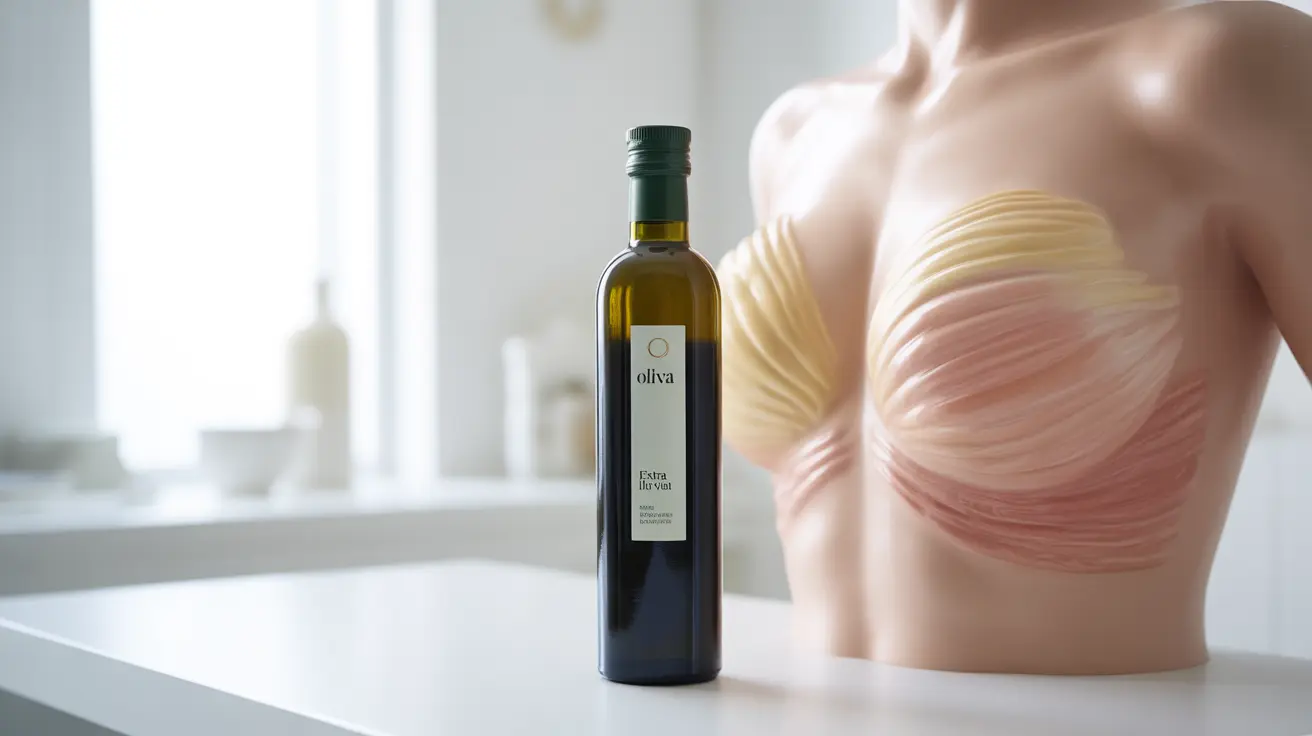The use of olive oil for breast health has garnered significant attention in recent years, with many people exploring its potential benefits for both topical application and consumption. This natural oil, rich in antioxidants and beneficial compounds, has been studied for its possible effects on breast tissue health and cancer prevention.
Understanding the relationship between olive oil and breast health requires examining both scientific evidence and practical safety considerations. Let's explore what research tells us about this versatile oil's potential benefits and limitations.
The Science Behind Olive Oil and Breast Health
Olive oil contains several compounds that may contribute to breast health, including:
- Polyphenols
- Vitamin E
- Squalene
- Oleic acid
These components have demonstrated antioxidant and anti-inflammatory properties in scientific studies. Research suggests that these compounds may help protect breast tissue cells from oxidative stress and damage.
Topical Application of Olive Oil
When considering topical application of olive oil to breast tissue, it's important to understand both the potential benefits and limitations:
Skin Benefits
Olive oil can help maintain skin health when applied topically by:
- Providing moisture and hydration
- Supporting skin elasticity
- Offering antioxidant protection
- Helping to maintain skin barrier function
Application Guidelines
For safe topical use of olive oil on breast skin:
- Always use high-quality, pure extra virgin olive oil
- Perform a patch test before full application
- Apply gently without excessive pressure
- Use clean hands or sterile cotton balls for application
- Discontinue use if any irritation occurs
Olive Oil and Breast Cancer Prevention
Research on olive oil's role in breast cancer prevention has shown promising results, particularly in the context of a Mediterranean diet. Studies suggest that regular consumption of olive oil as part of a healthy diet may contribute to lower breast cancer risk.
Key Research Findings
Scientific studies have identified several mechanisms through which olive oil might help protect against breast cancer:
- Reduction of oxidative stress
- Modulation of cell signaling pathways
- Anti-inflammatory effects
- Support for immune system function
Frequently Asked Questions
What are the benefits of applying olive oil to breast skin?
Olive oil can help moisturize and soften breast skin, potentially improving elasticity and providing antioxidant protection. It may help maintain skin health through its natural vitamin E content and moisturizing properties.
Can massaging olive oil on breasts increase their size or firmness?
There is no scientific evidence supporting claims that olive oil can increase breast size. While massage with olive oil may temporarily improve skin appearance and elasticity, it cannot alter breast tissue volume or structure.
Does consuming olive oil reduce the risk of breast cancer?
Studies suggest that olive oil consumption, particularly as part of a Mediterranean diet, may help reduce breast cancer risk due to its anti-inflammatory and antioxidant properties. However, more research is needed to establish definitive connections.
Is it safe to use olive oil topically on breast skin, and what precautions should I take?
Olive oil is generally safe for topical use on breast skin. However, always perform a patch test first, use pure extra virgin olive oil, maintain proper hygiene during application, and discontinue use if any irritation occurs.
What scientific evidence supports the use of olive oil for breast cancer prevention or breast tissue health?
Scientific research has shown that olive oil contains compounds with anti-inflammatory and antioxidant properties that may help protect breast tissue health. Studies particularly focus on its potential role in cancer prevention when consumed as part of a healthy diet, though more research is needed for definitive conclusions.
Remember to consult with healthcare providers before starting any new health regimen, including the use of olive oil for breast health purposes.




